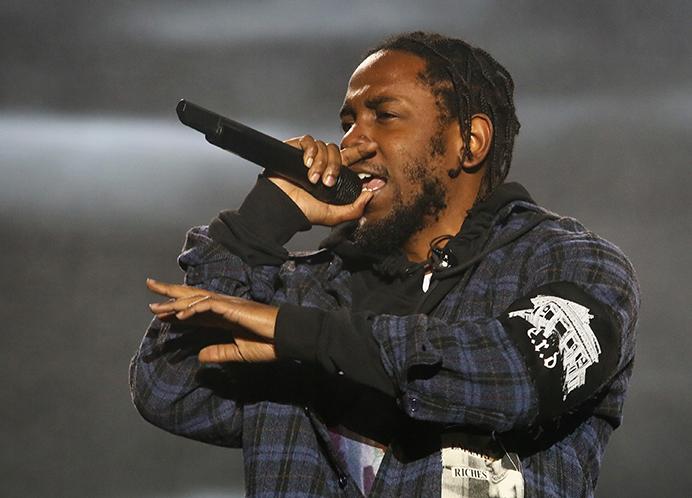By Isabella Rosario
Last week, Grammy award-winning rapper Kendrick Lamar dropped his new single, “Humble,” along with a cinematographically magnificent visual directed by Dave Meyers. The three-minute video leaves fans a lot to talk about, from its blasphemous Last Supper imagery to whether it includes a diss of Big Sean, but Lamar’s 12-second testimony to women’s natural beauty is what has some critics singing praises — and others shaking their heads. The lyrics include Lamar lamenting how “sick and tired” he is of Photoshop and begging to be shown “something natural.”
A split screen divides a black woman’s face between an airbrushed, perfectly contoured, slicked hair version on the right and a makeup-less, curly hair version on the left. When the woman walks to the left of the screen, her clothes, face, and hair become completely “natural” as Kendrick eyes her approvingly. The video also shows a shot of a woman’s butt with stretch marks, something rather unprecedented not exclusively in the context of rap music videos.
The response to this blurb of social commentary has been blown out of proportion on both sides. A Vogue article called the video a “powerful message of feminist support,” while a writer at Refinery29 condemned it as a misogynistic message to all women about how to be attractive to men.
I’ll admit that when I first saw the video for “Humble,” my reaction to this scene was immediately positive. Personally, it felt empowering to see a woman’s stretch marks praised in a music video that has since amassed 30 million views — it still does. But after my excitement over a new Lamar song calmed down a bit, I challenged myself to think more critically about the lyrics. It’s clear that he is speaking for himself and his preferences; he confirms that he’ll still have sex with a woman on her “mama’s couch” if she’s not wearing makeup and wearing her hair naturally. So, not exactly a message of “feminist support” or empowerment, like some listeners are saying. But at the same time, I don’t think it’s a condescending message to all women, either — he’s speaking about his preferences, after all. If it was meant to be a powerful political statement, I’d call it a rather lukewarm one.
It’s no secret rap music has an issue with rampant misogyny (not that that really stops me from blaring Kanye West). We often place rappers such as J. Cole and Lamar in a separate category of social consciousness from others such as, say, Future. But just because Cole and Lamar are “woke” about such subjects as police brutality and capitalism, that doesn’t mean they always get it right when it comes to women. “For Free,” the anti-capitalist single from Lamar’s political album To Pimp a Butterfly, condemns the institution of capitalism through the lens of gold-digging black woman, as if capitalism doesn’t negatively affect black women as well as men. In short, those condemning and those applauding Lamar’s portrayal of women in “Humble” just might be expecting too much.
He is held to a higher standard than other rappers, even though he’s proven himself just as ignorant when it comes to the complexity of women’s issues and female bodily autonomy. While I don’t find “Humble” offensive, I understand that these futile attempts by men to empower women are cause for eye roll. Although well-intentioned, it often misses the mark. Stay humble, Lamar.



